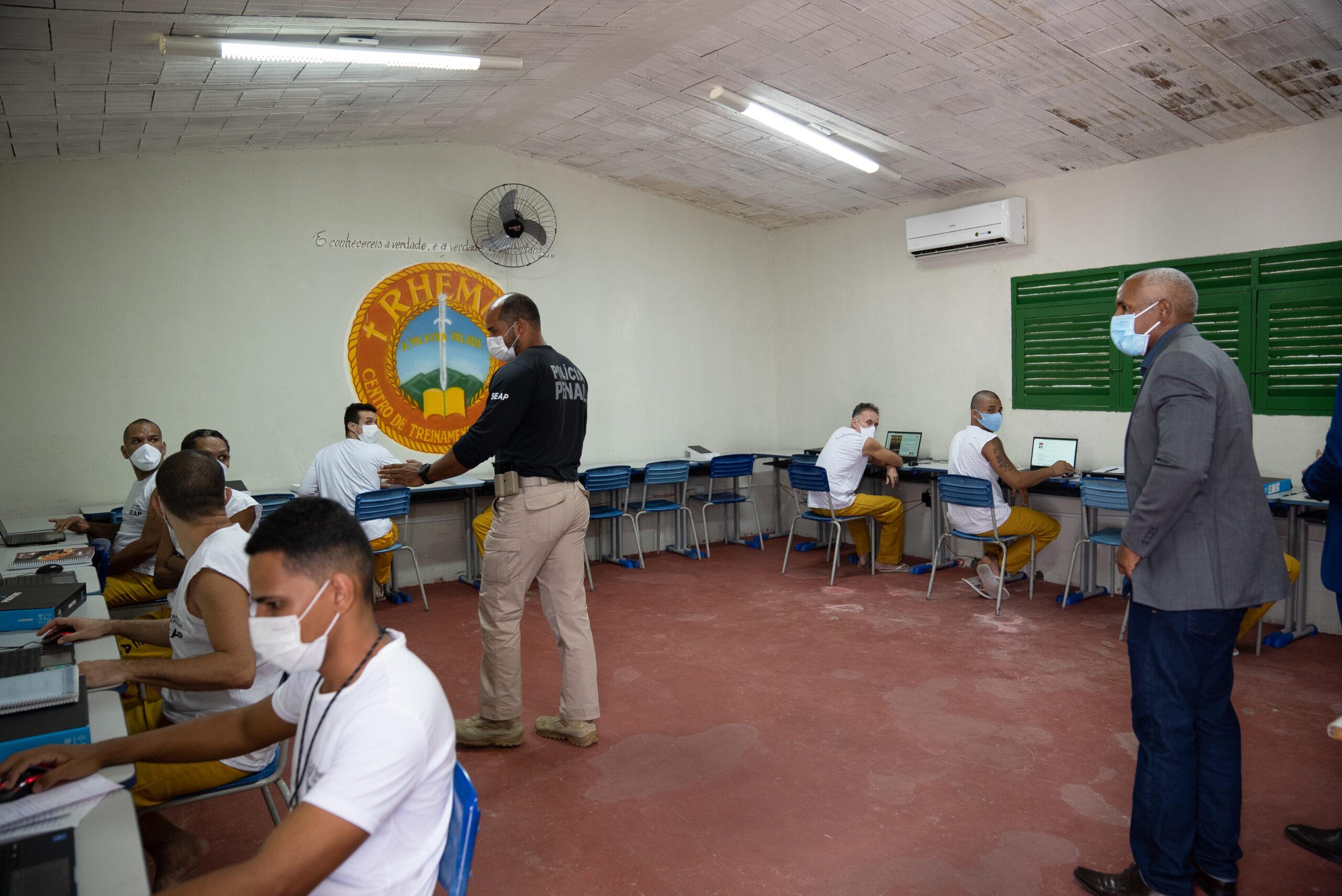The LAB360 project, created by the Humanitas360 Institute to enable inmates to make social visits and study remotely, has helped write an important chapter in the history of resocialization and social reintegration in Paraíba. In the last few days, a particular story drew attention to this effort: an inmate from Campina Grande’s Regional Prison Raimundo Asfora (Serrotão) was approved in first place in the National High School Exam for People Deprived of Liberty (Enem PPL) to study medicine.
The classes, held in person at the Federal University of Campina Grande, have already started. From Monday to Friday, during the day, André Soares da Cunha is allowed to leave the unit and attend the UFCG campus. On weekends, he accesses the computers provided by H360 through the LAB360 project to study.
“On Saturdays and Sundays, he goes to our computer lab, and there the partnership with Humanitas360 is of great importance, because the equipment was lent by them. That’s where he will study for exams, do online research and download the workbooks (which can be 400 pages long, so print it would be very expensive),” says Lennieferson Sucupira, criminal police officer and director of Serrotão.
In an interview to the government of Paraíba’s website, Soares da Cunha talked about the meaning of this achievement: “After the infraction I had committed, in a visit to my father who was in the ICU, I made a promise that I would still make him proud by studying medicine. So, inside the prison system I always tried to study, I also gave classes to other inmates and these classes helped me in the process of my cognitive and educational development.”
For João Rosas, executive manager for resocialization of the State Secretariat of Penitentiary Administration of Paraíba (SEAP/PB), the episode shows that “investing in the education policy is, without a doubt, the best alternative for us to reduce social inequalities in our country, especially in the prison system, formed most of the time by people who didn’t have the opportunity to access these public and social policies”.
André’s example is not the only one in the Serrotão unit. In the computer lab, which Sucupira calls “our online university”, there are six graduate students and a postgraduate one, all studying through distance learning. “If it weren’t for the equipment acquired in this agreement with Humanitas360, this wouldn’t be possible,” says the director, who is hopeful about expanding the project to accommodate a larger number of inmates admitted in exams.
“The LAB360 project is one of the great landmarks of the social reinsertion policy of the Paraíba prison system,” says João Rosas, who lists the windows of opportunity opened by the initiative: “The professional qualification of inmates through distance learning courses, digital inclusion, and, for the first time in our state, access to higher education classes for inmates approved in the Enem PPL and selected by SISU or Prouni for higher education courses in public and private institutions.”
In the view of Higor Cauê, director of the Humanitas360 Institute, “the power of transformation and emancipation created by education and the strengthening of bonds”, propitiated by LAB360 through technology, is undeniable, and, according to him, “it guarantees social and scientific experimentation of excellence”. For the director, stories like André’s point a way to guarantee the rights of imprisoned people. “We opted for the legacy of education in a place of great difficulties: the prison system. From the Nelson Mandela Rules for the minimum dignity of treatment to imprisoned people to the unconstitutional state of affairs environment, the prison is undoubtedly a place to exercise a sense of duty by the State and society, guaranteeing contact with the outside world, affective and community bonds, culture and education.”
Created in 2020, during the pandemic, LAB360 is present in prison units in Maranhão, Paraíba, and Rio Grande do Norte, with an expansion planned for Rio Grande do Sul. Click here and learn more about the project.





